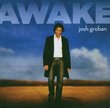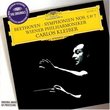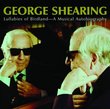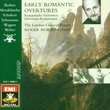| All Artists: Richard Wagner, Antonio Pappano, Plácido Domingo, Deborah Voigt, Orchestra of the Royal Opera House - Covent Garden Title: Plácido Domingo & Deborah Voigt - Wagner Love Duets ~ Tristan und Isolde, Siegfried Members Wishing: 0 Total Copies: 1 Label: EMI Classics Release Date: 8/15/2000 Genre: Classical Style: Opera & Classical Vocal Number of Discs: 1 SwapaCD Credits: 1 UPCs: 724355700421, 724355700452 |
Search - Richard Wagner, Antonio Pappano, Plácido Domingo :: Plácido Domingo & Deborah Voigt - Wagner Love Duets ~ Tristan und Isolde, Siegfried
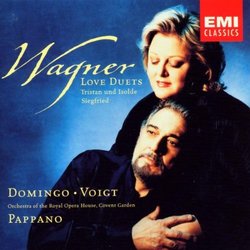 | Richard Wagner, Antonio Pappano, Plácido Domingo Plácido Domingo & Deborah Voigt - Wagner Love Duets ~ Tristan und Isolde, Siegfried Genre: Classical
This stunning disc includes the two long love duets from Act III of Siegfried and Act II of Tristan und Isolde (including a new "resolution" that was written into the latter from the Act III "Liebestod"). In Plácid... more » ![header=[] body=[This CD is available to be requested as disc only.]](/images/attributes/disc.png?v=15401716) ![header=[] body=[This CD is available to be requested with the disc and back insert.]](/images/attributes/disc_back.png?v=15401716) ![header=[] body=[This CD is available to be requested with the disc and front insert.]](/images/attributes/disc_front.png?v=15401716) ![header=[] body=[This CD is available to be requested with the disc, front and back inserts.]](/images/attributes/disc_front_back.png?v=15401716) |
Larger Image |
CD DetailsSynopsis
Amazon.com This stunning disc includes the two long love duets from Act III of Siegfried and Act II of Tristan und Isolde (including a new "resolution" that was written into the latter from the Act III "Liebestod"). In Plácido Domingo and Deborah Voigt, Richard Wagner's characters find powerful, vulnerable, almost transcendental exponents. Domingo's voice, of course, is no longer in the freshest bloom of youth. But, if he is not the impossibly ideal 25-year-old Heldentenor about whom one fantasizes singing Siegfried, he brings an authority and sensitivity to the role that sweeps one away. Voigt, too, gets to the heart of the female characters, and sings Brünnhilde with such subtle vulnerability that her moments of powerful exclamation sound as if she is trying to convince herself of their truth. There is no bombast for bombast's sake, and the result is psychologically all the more true. Antonio Pappano, a conductor alive to every nuance of the singers' phrasing, brings a Mediterranean sensuousness to the score, and draws some remarkably luxurious sounds from the Royal Opera House band. The acoustic also gives a wonderful depth to the texture, and the brass especially sounds gorgeous. --Warwick Thompson Similarly Requested CDs
|
CD ReviewsNot just for Domingo's fans! opernnarr | Carrboro, NC USA | 08/20/2000 (5 out of 5 stars) "It was back in the 1970s that Placido Domingo first mentioned his desire to sing Tristan. He claimed then that it would come at the end of his career, the last role he would add to his repertoire. I suspect that in the interim he's refused numerous offers to sing the complete opera on stage. He was also the tenor of choice for the ill-fated Solti/Decca studio recording, which was cancelled after the conductor's death in 1997. In short, we've waited a long time to hear Domingo in this music, and this disc rewards us amply for our patience. The recording presents two of Wagner's most exciting scenes for soprano and tenor, excellently sung and beautifully accompanied, and Domingo is just one of its strengths.The tenor's voice is no longer that of a young man: it's darker, a little less tightly focused, and he applies himself somewhat carefully to Wagner's longer and higher phrases. And there's no doubt that the microphones help him cope with the heavy orchestrations. But what gorgeous sounds he makes! His voice is perfectly firm from top to bottom and his legato is glorious. Something in his sound suggests romantic ardor, and he sings here with a passion that few modern Heldentenors can equal. I found him more convincing as Tristan; Siegfried, I think, simply needs a younger sound. But as always with this artist, he convinces you that he's right for (most of) what he sings. For my money, the real star here is Voigt, who fully deserves equal billing. Her voice is astonishing: big in scale, bright in tone, perfectly projected, with jaw-dropping amplitude on high, sustained notes. She never sounds strained or uncomfortable, and every word is perfectly intelligible. Although she is a more straightforward interpreter than her tenor, she always sings within character. I loved hearing her in this music, and hope this isn't her last stab at the big Wagner roles. Pappano's direction fully captures the sexual energy and sensuality of the music, and his 'Tristan' postlude (in the concert version recorded here) is breathtaking. And finally, don't tune out Violeta Urmana's Brangaene; she's one of the world's top dramatic mezzos and possesses a rich, exotically colored voice. She can hold her own in this company.So yes, don't hesitate! It's good!" Extraordinarily magnificent Wagner! Grady Harp | Los Angeles, CA United States | 12/15/2000 (5 out of 5 stars) "Tales abound about opera singers who went mad because of the music of Tristan und Isolde, how opera patrons swooned into coma upon the inital hearing of this love music. Well, here is the most tangible proof on record of just how ecstatically splendid Wagner can be in the hands of the right singers, conductor and orchestra. Domingo seems created for these two roles, even though he has done little Wagner during his long and thoughtful career. His rendering of the Liebestod leaves us breathless. Voight shines with a radiance on the top and a warmth in the lower register that is simply staggering. And underlining all of this is Pappano's sweeping and tender conducting. Prepare yourself to sail the heights of romanticism and lyricism. Play this disc, alone, in the dark, and all the mundane distractions of our world evaporate! Indulge!" Stirring rendering of two of Wagner's Masterpieces James Walters | Seattle, WA USA | 08/21/2000 (5 out of 5 stars) "Both Deborah Voigt, and Placido Domingo soar their powerful instruments over the lush orchestrations of two of Wagner's most famous love scenes. Pappano's leading of the orchestra is exceptional, and he brings pathos out of the score that have been look over in the recent years. He is quickly establishing himself as one of the most important conductors of the new century. Voigt, and Domingo who are both know for their renditions of the less dramatic Walkure twins, bring beautiful bel canto singing to the lines of Wagner's Music. Their beautiful singing of this music makes it that much more enjoyable. It is wonderful to hear a Siegfried, and a Tristan (other than Vickers, and Heppner) sing a complete phrase, instead of abruptly cutting off every held note.The concert ending for Tristan und Isolde is enjoyable, if only a little anti-climatic. I also wish they had started the duet with Tristan's entrace, "Isolde! Tristan! Geliebte!" I would have loved to hear Domingo and Voigt sing this exciting part. While I don't imagine Voigt or Domingo will be performing these roles on stage any time soon, the recorded sound is gorgeous. Overall a wonderful recital, easily recommended to Wagner enthusiasts, or those coming to Wagner for the first time."
|

 Track Listings (14) - Disc #1
Track Listings (14) - Disc #1

